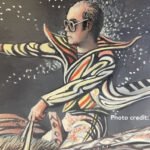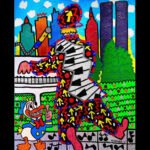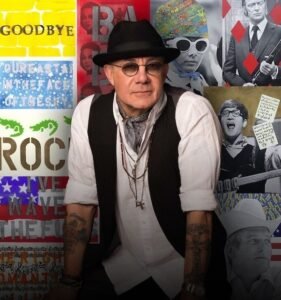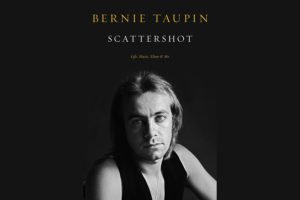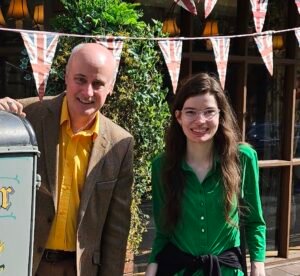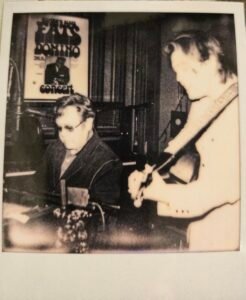Gavin Sutherland, whose group once toured with Elton, has released some new music. He spoke with Eltonjohnworld.com about his work as well as about a couple of famous acquaintances. . . .
EJW: One of 1973’s most outstanding releases was Sutherland Brothers & Quiver‘s ”(I Don’t Want to Love You) But You Got Me Anyway”. Did you expect it to be such a hit? Was this what led to your being asked to be a warm-up act for Elton John?
GS: I think the song became a hit because we were in the states touring with Elton. The tour was a big break for us, coast to coast and all the major venues on our first trip across the water. Before we were asked to join the tour we got to know Rod Stewart. He came to few of our gigs in London and liked our music. Rod, as you know, was a good old friend of Elton and maybe he mentioned us to him when Elton was looking for a band to open the shows on the ”Goodbye Yellow Brick Road” tour. We, of course accepted his kind invitation. Madison Square Garden, Hollywood Bowl, and all those cities in between, how could we say no?
EJW: What was Elton like to work with and hang out with?
GS: He was a kind and generous tour boss, always keen to make sure everyone on the tour was ok. I remember he gave us a ride on his big tour jet a few times. Yeah, a good guy, who loved his rock n’ roll. Very impressed by his knowledge of bands and stuff, especially the Beatles. Be happy to have him in my pub quiz team.
EJW: How long were you on the road with him, and which gigs did you particularly enjoy?
GS: I think it would have been about two months. It was pretty intense and we covered a lot of ground. It’s hard to pick out favourite gigs. They were all good for us. We were new to the stadium scene and we learned a lot as we travelled around. I remember a guy in Seattle telling me he’d love to go to New Orleans and asking me what New York was like. Yeah, we were lucky to be on the road with Elton, wherever we went the ‘Yellow Brick’ show was a big deal.
EJW: Quiver‘s Tim Renwick joined Elton’s group for a while, and was later in the Bucket Boys. Who did you and your brother, Iain, go on to work with?
GS: We carried on touring as SBQ for a couple of years then did our last album together as the Sutherland Brothers in L.A. with a fine bunch of musicians. After that we decided to have a break, and the break lasted a bit longer than we thought it would! We both carried on writing and I played for the fun of it with two or three bands around the Midlands of England.
EJW: Both you and Iain recently released CDs. Could you talk a bit about them?
GS: I did an album a couple of years ago and decided it was time for another. I know it’s a cliche, but music really is my life, and has been since I was a kid, it’s like an addiction, or maybe a religion, you can’t put it down and I’ll carry on as long as I have something to say. Iain hadn’t recorded anything for years but had plenty of ideas and things he wanted to do. Most of his record was done at home but he came into the studio with me a few times to mix the tunes and finish things off. It was good to be back ‘in the office’ with him. We had a good time together, and it gave us time to chat about all kinds of things, politics, the world today, football, whatever, something we hadn’t really done for years. Yeah, that was good.
EJW: The industry has changed a great deal over the years. How do you feel about some of the transitions, and have they helped or hindered your career?
GS: Yeah, the whole thing has changed a lot through the years. I left school to join a band when I was sixteen. You played the local gigs, then someone might see you and get you a gig or two in the city, then, if you were lucky, you’d get to play somewhere in London. The whole music business was centered there in those days. Studios, record companies, agents, publishers, the whole thing. You had to move there if you really wanted to give it a go, so we did. Radio play was the key, and there were very few stations in the UK. It was all about the BBC, Radio One was the new thing and if they picked up your records you were in with a chance.
But that all changed with the video thing. The focus became less on how you sounded and more on how you looked and all the marketing and ‘branding’ stuff came into play. Then of course came the internet explosion with a massive effect on how everything is done these days and the music scene naturally changed along with everything else. It’s all so much more accessible now. I used to hunt around specialist record stores for things I wanted to listen to, old blues records and all that, but now all I need is google and whatever I want arrives at the door in a couple of days. That’s good, but maybe the downside is that things don’t have the same real value? But, for people like myself, the net is a gift. Being able to keep in touch with old friends and make new ones so easily makes it possible to stay on track, make music and get things across to people.





